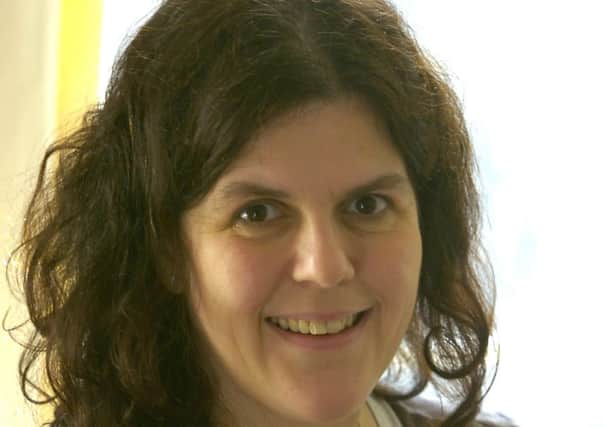Helen Fowler: MS diagnosis was almost a relief


It’s a beautiful day; perfect for climbing in the mountains. I should be up there with the rest of the walking group. But instead I’m driving through the valley in the support van.
Liz, the group leader, looked puzzled when I told her earlier this morning, before we broke camp, that I couldn’t walk the twenty or so kilometres through steep mountain paths we had planned. I needed a “rest day”, travelling with her in the van.
“Are you ill? Do you need a doctor?” she asked me.
“No, no,” I replied. “I’m just feeling very tired.”
This is something of an understatement.
Advertisement
Hide AdAdvertisement
Hide AdLassitude has gripped me. Cement running through my veins, sucking out my energy.
It’s not a lack of fitness. I’ve spent months training for this walk, running at the local gym.
But I still judge myself. I imagine Liz must be judging me too. Lazy bones. Idle. Lay-about. This is what I think about myself. No-one else I know needs the same amount of sleep as me. I can’t help feeling this is a moral failing on my part.
I look up at the mountains from inside the van and try to spot the rest of the group, who are making their way up to the pass. All of them are people I was laughing with as we walked together the day before. I wish so much I was there with them all, not least because there is a man among them who’s the same age as me. He’s tall and rather shy; it turns out he likes books and walking as much as I do.
I know it’s silly, but I can’t help worrying that he might start liking somebody else while I’m stuck in the van. But this tiredness is as powerful as lead weights, tying me down.
More than ten years have passed since that trip to the Pyrénées. I am married to the tall man I met back then. The fact that his mother is a doctor has assumed greater significance. We have two children together.
One of them is meant to be at a judo class at the local leisure centre this afternoon.
My daughter takes her judo seriously. She likes talking about learning to throw people to the ground – especially boys.
Advertisement
Hide AdAdvertisement
Hide AdBut, yet again, I feel weighed down with tiredness. This is flooring me. And demanding a long sleep. If I try to carry on to the local leisure centre, I know from experience that I won’t cope.
“I am so sorry about this, but I can’t take you to judo this afternoon,” I tell my daughter, after picking her up from school.
“It’s all right, Mummy,” she says. I can see she is disappointed. But my exhaustion is something we are all learning to accept.
These are not isolated incidents. For as long as I can remember, I have experienced this kind of tiredness.
People teased me about the exhaustion when I was a student. My best friend gave me birthday cards featuring pre-Raphaelite beauties deep in sleep.
Now at last I have an explanation. It’s all part of my Multiple Sclerosis (MS), which was diagnosed in 2014. The tiredness I’ve had for years is almost certainly related to this condition.
I remember a conversation with an MS doctor at the Anne Rowling Clinic in Edinburgh shortly after my diagnosis.
“I feel exhausted so much of the time.”
“That’s the MS.” The doctor tells me that exhaustion is a common symptom of the illness.
“So, I’m not just lazy?”
“No, you’re not. This is MS.”
Advertisement
Hide AdAdvertisement
Hide AdI never thought I’d be grateful to hear that I had MS. But it beats being labelled work-shy or a slacker. Even if the only person doing the labelling is myself.
Helen Fowler is a journalist and MS campaigner from Edinburgh